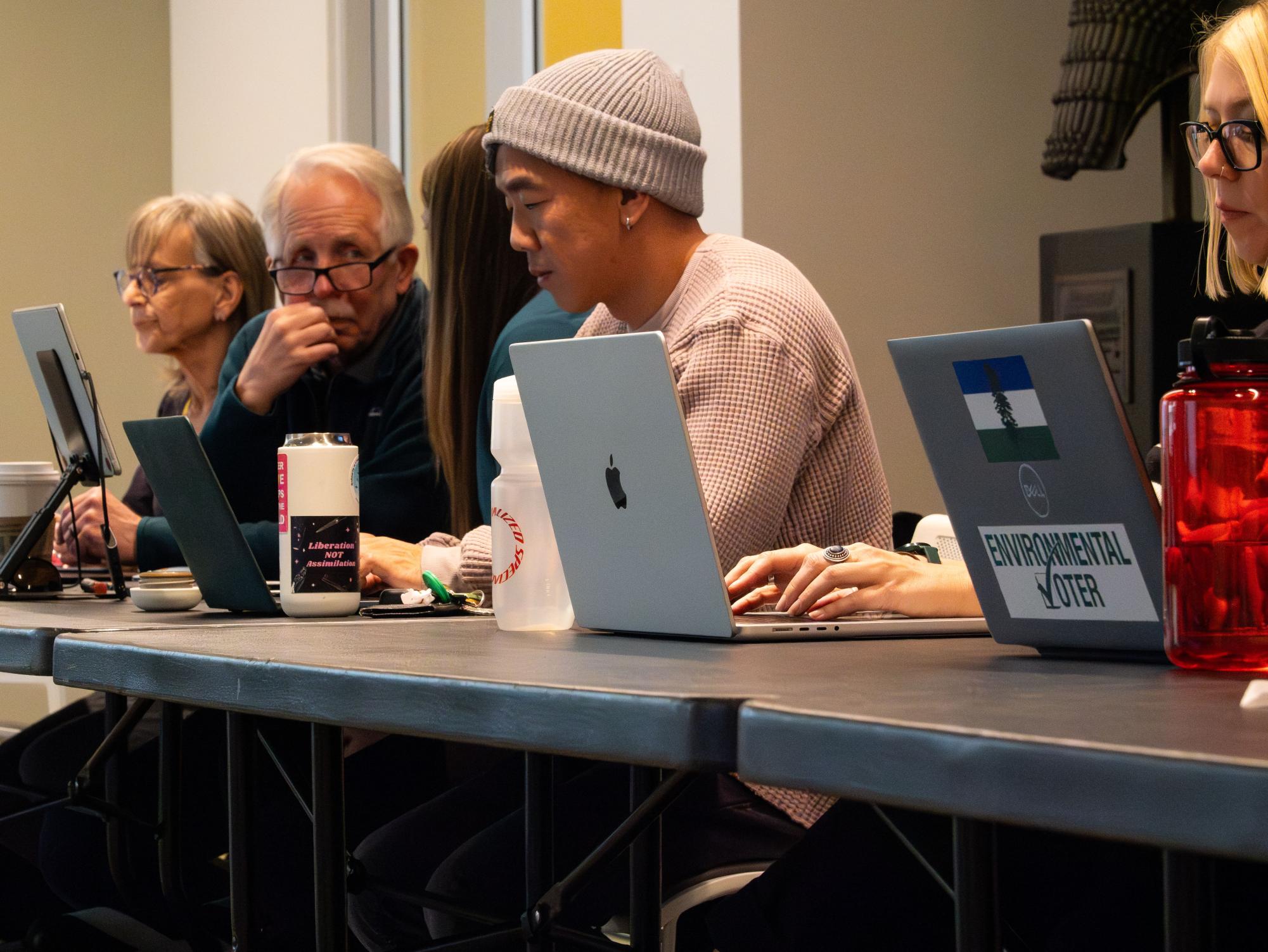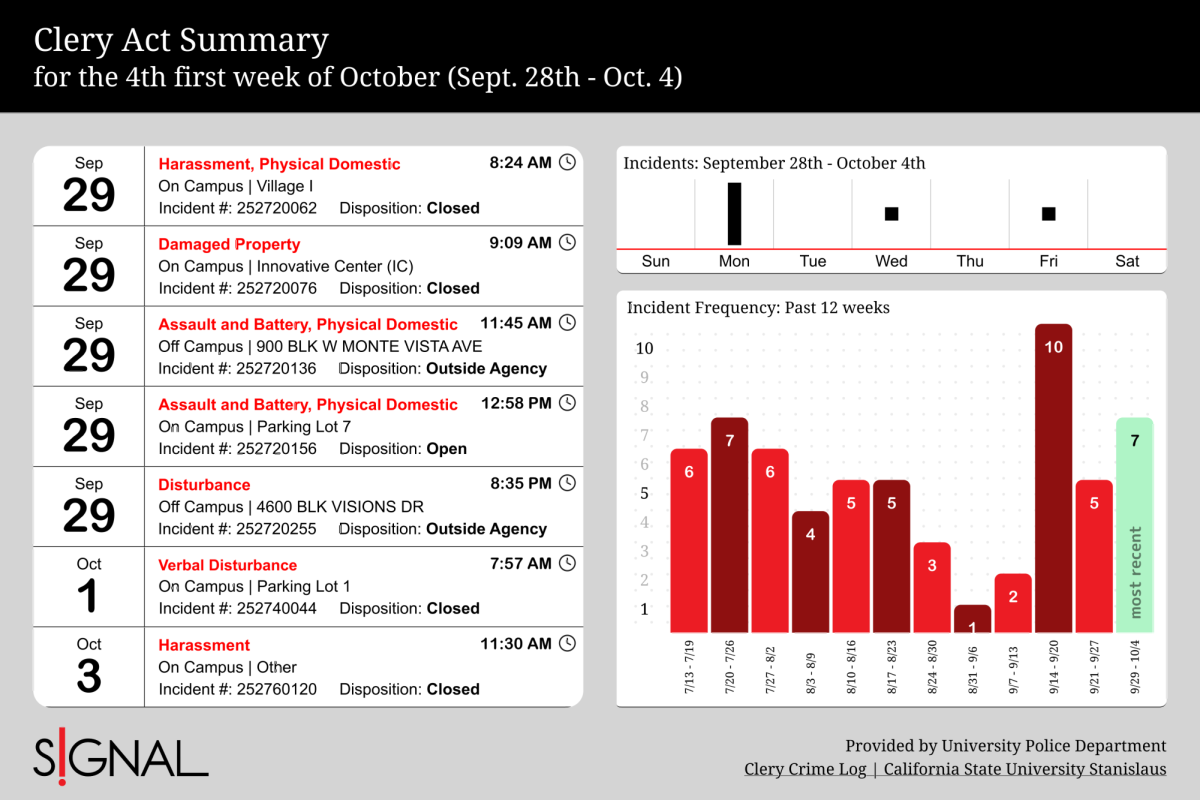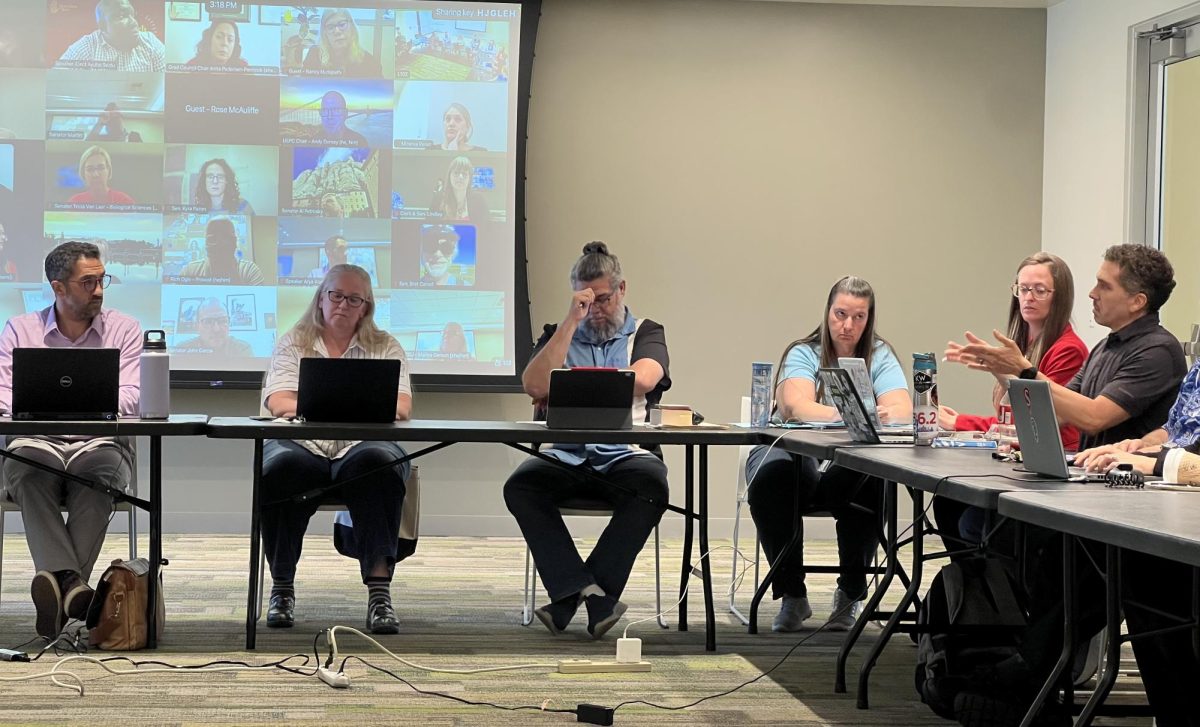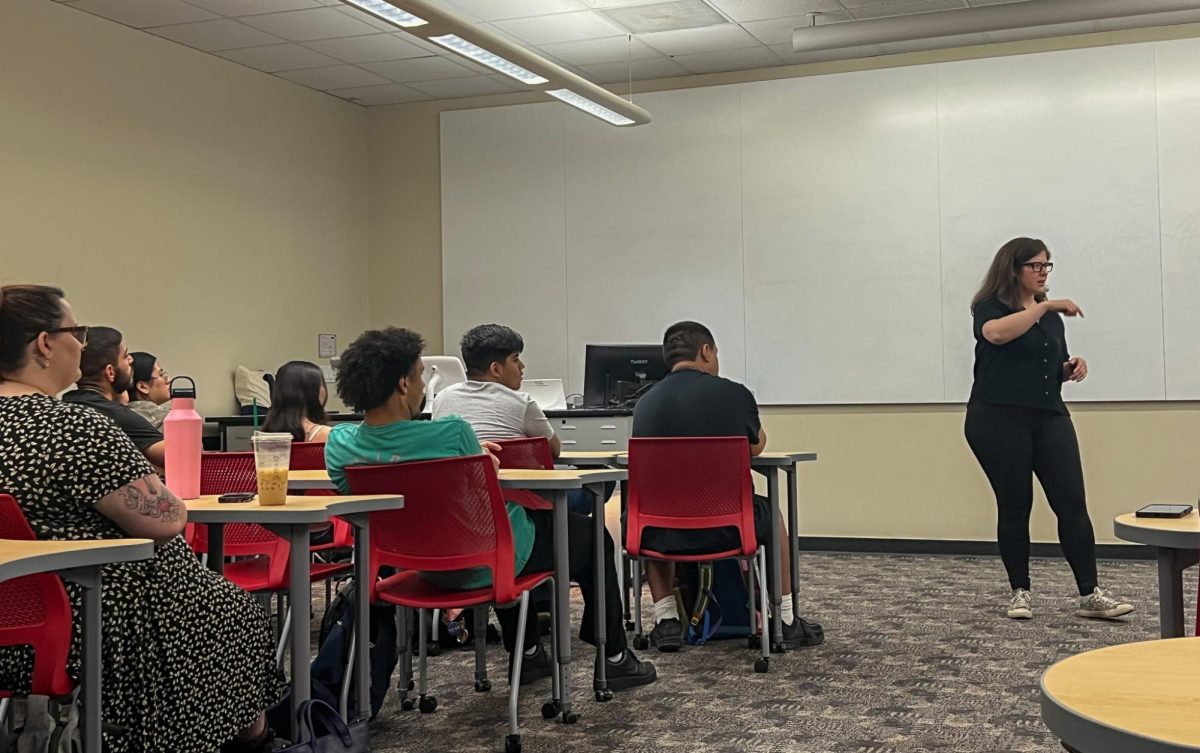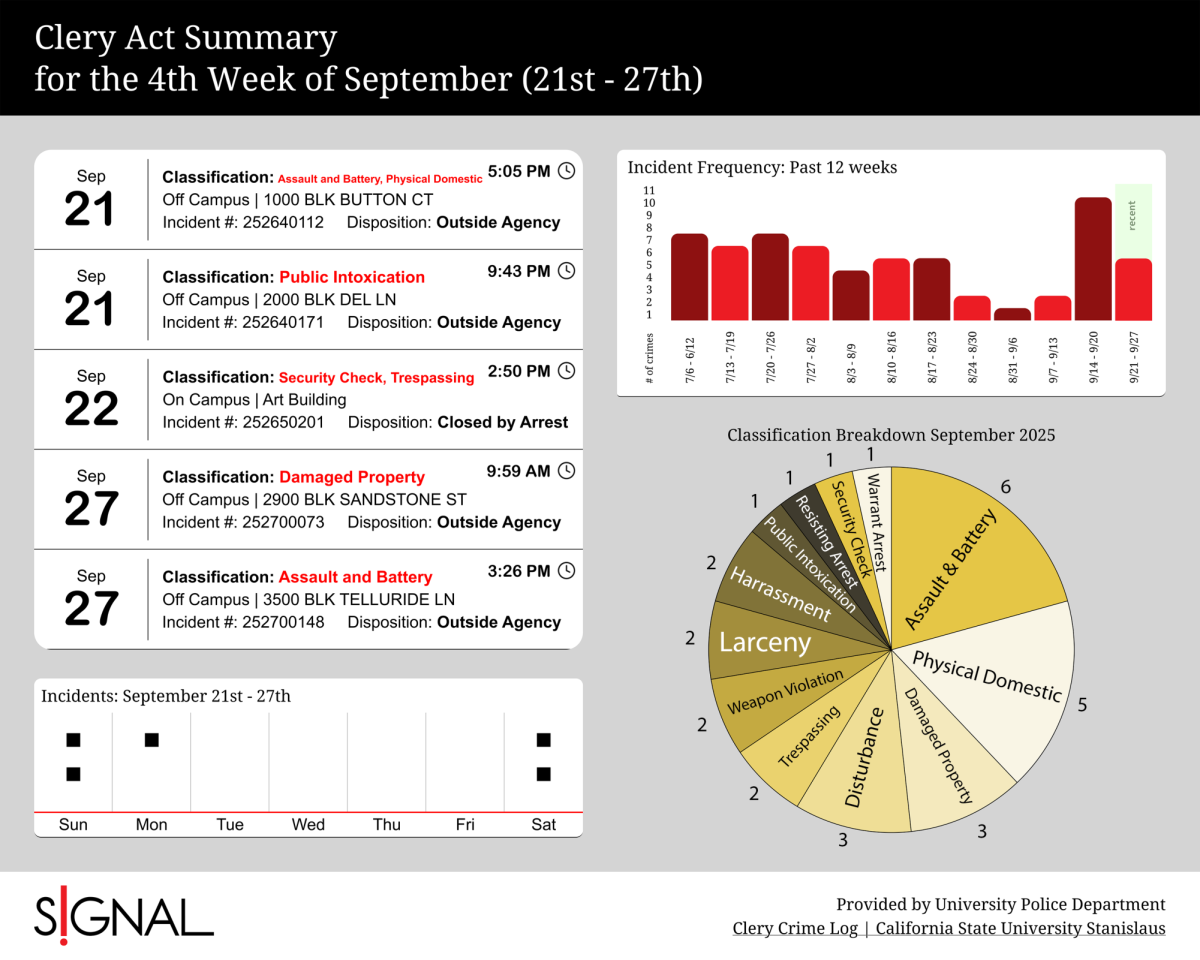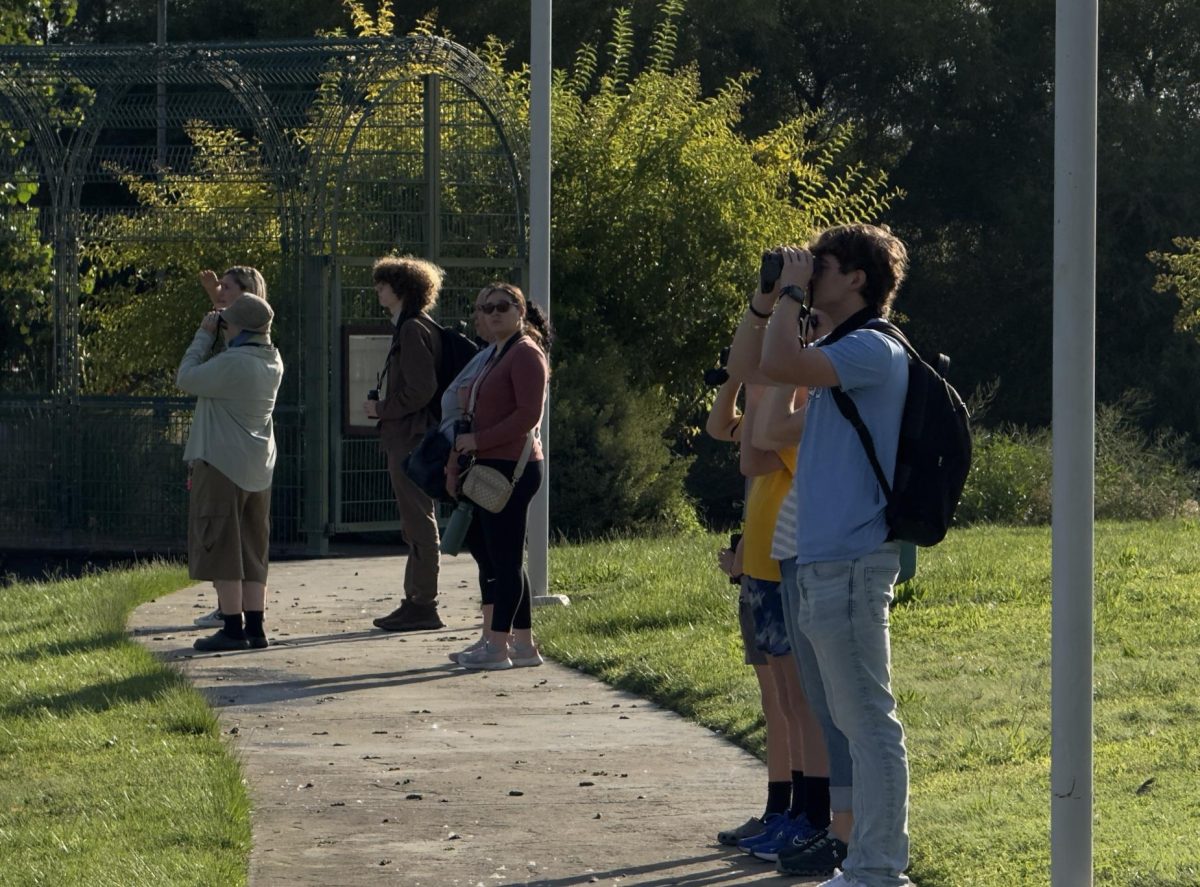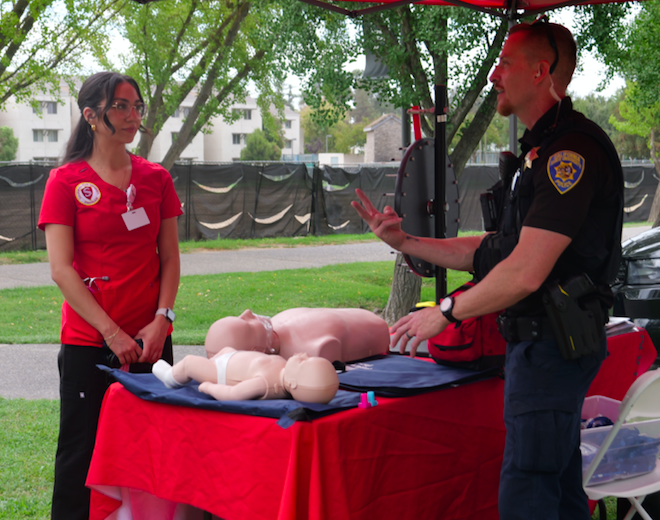Today’s Academic Senate session saw intense disagreements between faculty and administration on matters of the budget, with President Britt Rios-Ellis viewing the recent budget cuts as unfortunate but necessary, and CFA Chapter President Dave Colnic doubting the legitimacy of the CSU administration’s claims that there are a lack of funds while questioning whether the current budget is being appropriated in a way that serves students.
This session also saw the resignation of the Speaker of the Faculty from his position and talks about the proper procedure for faculty to protect their students from ICE if they are to come onto campus.
Speaker of the Faculty Steps Down, Effective Immediately, Citing Administration Incompetence and Malice
Now former Speaker of the Faculty, Dr. Christopher Bradshaw, announced his sudden resignation at the beginning of today’s session, stating that he “can no longer sit across the table from university administrators” who lack collegiality.
The former speaker also alleges the current administration addresses problems in ways that only serve to protect their own interests and their positions. As such, he lacks faith in their ability to handle pressing issues, including the current budget crisis.
Dr. Bradshaw said his decision to step down is what is best for his mental health and for his family.
Bradshaw’s responsibilities will now fall to the Speaker-elect Arya Alami.
CFA Pledges Support for Faculty and Student Immigrants and Pushes Back on CSU Administration’s Recent Austerity Measures
CFA Chapter President Dave Colnic began his report by acknowledging that it has been made clear that the current federal government is “not a friend to immigrants, students, faculty.”
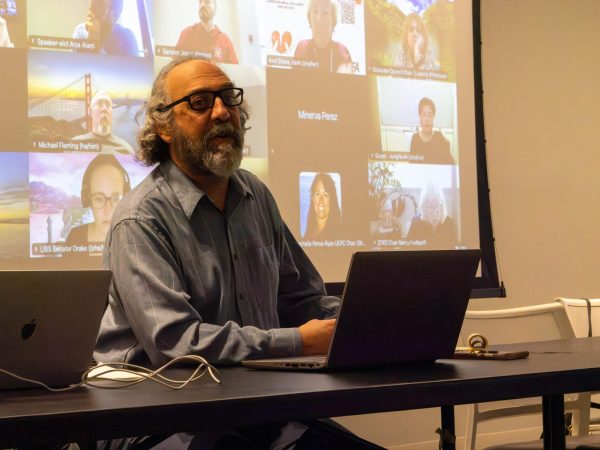
He reports that the CFA and Faculty Affairs are working together to put on events to inform immigrant and non-citizen faculty of their rights. Colnic encourages faculty to contact the CFA Executive Council if they feel as though they might be a target for deportation.
Continuing on, Colnic fought back against the narrative from administration that “austerity talks” are strictly necessary.
He claims that, in 2009 after the economic crisis, such measures were warranted. However, he says that a generally strong economy and the continuing increases in funding from the state leads him to believe that the current talks and measures are “largely manufactured.”
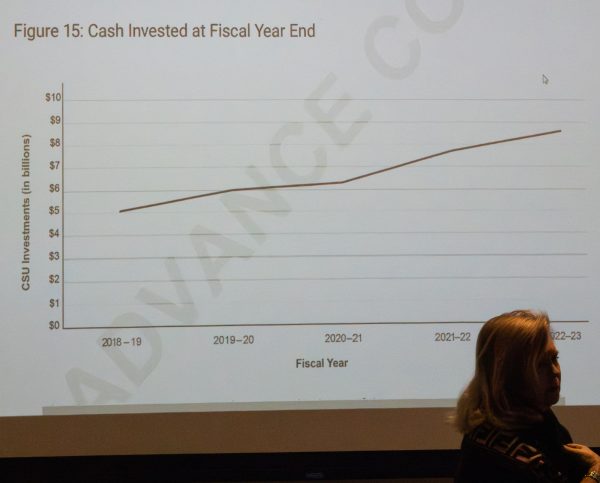
He claims that both individual CSUs and the CSU Chancellor’s Office have invested money in “short term things” and that the budget needs to be divested towards maintaining the best possible education practices, including not slashing courses, freezing hires, or raising course caps. He also says that the data shows that the CSU’s cash flow has only continued to increase over the past decade, and so he questions how this revenue is being spent.
Colnic encouraged the faculty in the room to advocate for more accountability for the financial decisions of the CSU, and to express how a 7.95% cut in spending, as is being proposed by the CSU, would be disastrous, as the cuts that have already been made have already been responsible for a great loss in the quality of education being provided.
President Britt Rios-Ellis Reports Back from Washington D.C. with Promises to Protect Immigrant Students and Provide Transparency on Budget Cuts
Stan State’s President opened her report by discussing the issue of DEI initiatives and departments, which recent executive orders have demanded a halt to all government spending on these practices. Rios-Ellis affirmed that she plans on navigating these challenges in a way that maintains the spirit of diversity, equity, and inclusion on Stan State’s campus.
Rios-Ellis, on the topic of immigration, says she is working closely with the CSU Board of Trustees to distribute information and legal help to students and faculty of non-citizen status. She says that the CSU is “at the forefront” of protecting the rights of immigrants.
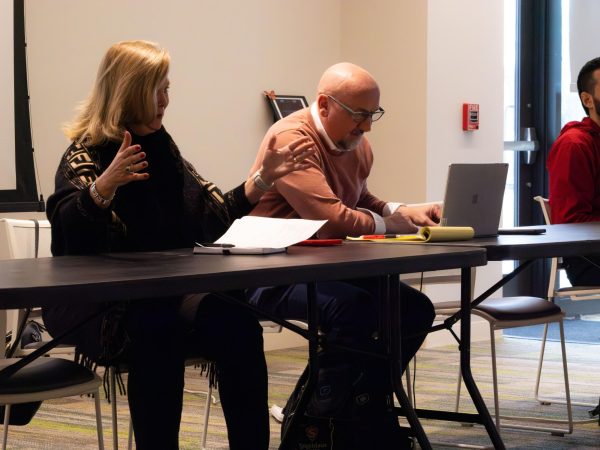
Additionally, Rios-Ellis announced plans to send out public reports which will show how many faculty, staff, and administration positions that have been frozen, and also which courses’ caps have been increased, which courses have been cut, which courses are overenrolled, and overall what the material impact of the current austerity measures will entail.
Speaker-elect Arya Alami cut comments and conversation on Rios-Ellis’s report short for the sake of time, but there were a number of faculty objections to the president’s claims that the CSU system doesn’t have the money to support and compensate for the budget shortfalls happening across CSU campuses.
How Faculty Should Handle a Confrontation with ICE On-Campus
Associate Vice President for Faculty Affairs (AVPFA), Kris Roney, joined the Senate as a guest speaker today to distribute information about how faculty should respond if ICE begins to show an on-campus presence.
“If you are teaching in your classroom, that is a protected space,” Roney says.
If somebody claiming to be from ICE comes into a classroom, the faculty member is not obligated to provide information or cooperate with the ICE officer, and Roney advises faculty to call UPD or Public Safety & Risk.
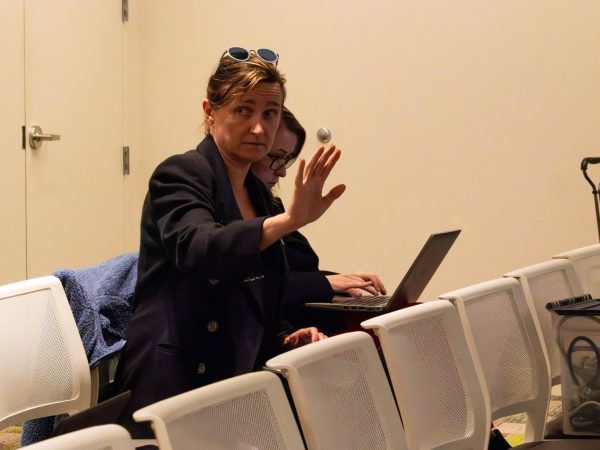
In fact, faculty are not authorized to review the documentation, such as a court warrant, that would be necessary to operate on campus. “I am not authorized,” according to Roney, should become a key phrase for faculty to memorize.
Colnic asked Roney what other options there are for students or faculty who are, for various reasons, uncomfortable interacting with police.
Roney replied by saying that faculty and students are free to call her in these situations and that she will act however she can in a way that best protects the targeted individual.

